Healthcare data is constantly changing and growing. It can come from various sources, including electronic health records, insurance claims, patient portals, and wearables. This data can help organizations improve clinical outcomes, enhance operational efficiency, and reduce care costs. However, organizations will quickly be overwhelmed by the volume and velocity of incoming data without a solid strategy to manage it.
A healthcare data strategy outlines how an organization will collect, analyze, and utilize health data to achieve specific goals. This guide will discuss the significance of healthcare data strategies and provide actionable insights to help you create a plan for your organization.
Azulity’s healthcare master data management services can help you achieve your goals by simplifying healthcare data management. With our solution, you can create a single, accurate, comprehensive view of health data, leading to better decision-making and improved organizational performance.
Importance of Data Strategy In Healthcare


1. Stopping Medical Mistakes and Boosting Patient Safety
Medical errors are a leading cause of death worldwide. A solid healthcare data strategy provides accurate, timely access to patient records and history, enabling better-informed treatment decisions. In 2017, a miscommunication in a patient’s medication history led to a preventable death at a New York hospital. The incident highlighted the dangers of fragmented data across systems and underscored the need for a cohesive data strategy to ensure accurate patient data is accessible across all departments.
2. Detecting Diseases Early and Taking Action
A data-driven approach allows healthcare providers to analyze patterns and predict disease outbreaks or individual patient risks, improving early detection and intervention. Kaiser Permanente implemented predictive analytics to identify patients at risk of chronic diseases like diabetes. With early interventions based on this data, they reduced hospitalizations and helped many patients avoid progression to diabetes. Without this data insight, many cases might have gone undetected until more severe symptoms emerged, requiring costly treatments.
3. Cutting Operational Costs and Boosting Efficiency
Managing healthcare costs without compromising care quality is a priority. A data strategy helps identify inefficiencies and optimize resource allocation. Intermountain Healthcare’s data-driven approach revealed duplicative lab tests across its facilities, costing millions annually. By streamlining test protocols and consolidating patient data, they achieved significant savings. A lack of a unified data strategy would have meant ongoing financial waste and operational inefficiencies.
4. Ensuring Compliance and Lowering Legal Risks
Compliance with regulations like HIPAA in the U.S. is mandatory to protect patient data. Poor data management can lead to costly legal consequences and damage to reputation. In 2018, a significant data breach at UnityPoint Health exposed the personal health information of 1.4 million patients. The breach was attributed to insufficient data security protocols and the need for a cohesive strategy. Beyond the financial cost, this breach eroded trust and underscored the need for rigorous data governance.
5. Fueling Innovation and Personalizing Care
Data allows healthcare providers to tailor treatments to individual patients based on genetic, behavioral, and environmental factors. The Cleveland Clinic developed a data-based model to personalize treatment plans for cancer patients. They can predict how different patients will respond to specific cancer treatments using genomic data. With a robust data strategy, such precision in treatment would be more effortless, resulting in one-size-fits-all approaches that may be less effective.
6 Best Practices for Healthcare Data Strategy


1. Leverage Azulity for Healthcare Master Data Management
Azulity specializes in healthcare master data management, bringing proven expertise in implementing healthcare data solutions and credentialing across the US. Our comprehensive platform ensures consistent patient, provider, location, and claims data synchronization across all systems and departments.
Key features include healthcare MDM, provider MDM, reference data management, credentialing, and provider enrollment. We serve healthcare technology leaders – from CIOs and CDOs to VPs of data platforms and credentialing – helping them eliminate the costly problems of fragmented data systems. Book a call to learn more about our healthcare master data management services today!
2. Implement Data Validation Checks
Implementing rigorous validation checks and procedures can significantly improve data quality. The data processing software must only process records that follow predetermined rules and promptly flag any errors or outliers that do not meet acceptable ranges. By doing so, healthcare providers can ensure that their data is reliable, accurate, and complete. As a result, they can avoid potentially life-threatening mistakes and ensure that the right treatments are administered at the right time.
3. Standardize Data Formats
Implementing standardized terminologies, codes, and abbreviations is a great way to ensure consistency in healthcare data. Healthcare providers can achieve data standardization by adopting well-established frameworks, such as SNOMED-CT, FHIR, or ICD-10, allowing smooth data exchange among internal and external systems. Following these standards promotes transparency and openness in data sharing. Using standard file formats, forms, and templates also helps promote uniformity in data entry across different systems, facilitating efficient collaboration among healthcare providers.
4. Conduct Routine Data Audits
Routine data audits allow healthcare providers to ensure that their records are accurate and up-to-date. Reviewing data regularly helps identify discrepancies or errors and take corrective action before they lead to adverse outcomes. Additionally, routine audits allow healthcare facilities to identify areas for improvement, resulting in better patient outcomes. This approach can also help minimize the risk of system vulnerabilities, critical to protecting patient confidentiality and privacy. These data audits also ensure that healthcare providers comply with HIPAA and GDPR.
5. Upskill Your Healthcare Team
Developing digital literacy programs and encouraging data ownership can help improve data quality. When team members feel ownership of the data they collect and analyze, they’re more likely to take responsibility for ensuring its accuracy and completeness. This approach also fosters a culture of data quality. Along with digital literacy, staff should receive HIPAA training to ensure compliance with regulations for handling sensitive data. Implementing such training programs can equip healthcare organizations with knowledgeable and skilled staff, helping to maintain accurate and reliable data.
6. Invest in Data Quality Management Solutions
Healthcare providers should invest in capabilities for data quality management solutions. Modern organizations prefer end-to-end in healthcare with advanced data validation features that automate data quality processes. Using these solutions leads to faster data processing and more outstanding performance. A good practice is to invest in a no-code as it helps ensure the accuracy and completeness of their data without requiring extensive programming knowledge. As a result, your business users can also take ownership of the data quality. One good example is Azulity.
Related Reading
- Data Quality Management in Healthcare
- How to Secure Patient Data
- Master Data Management Solutions
- Patient Data Management System
7 Best Healthcare Data Strategy Tools
1. Azulity: Master Data Management Specialization for Healthcare
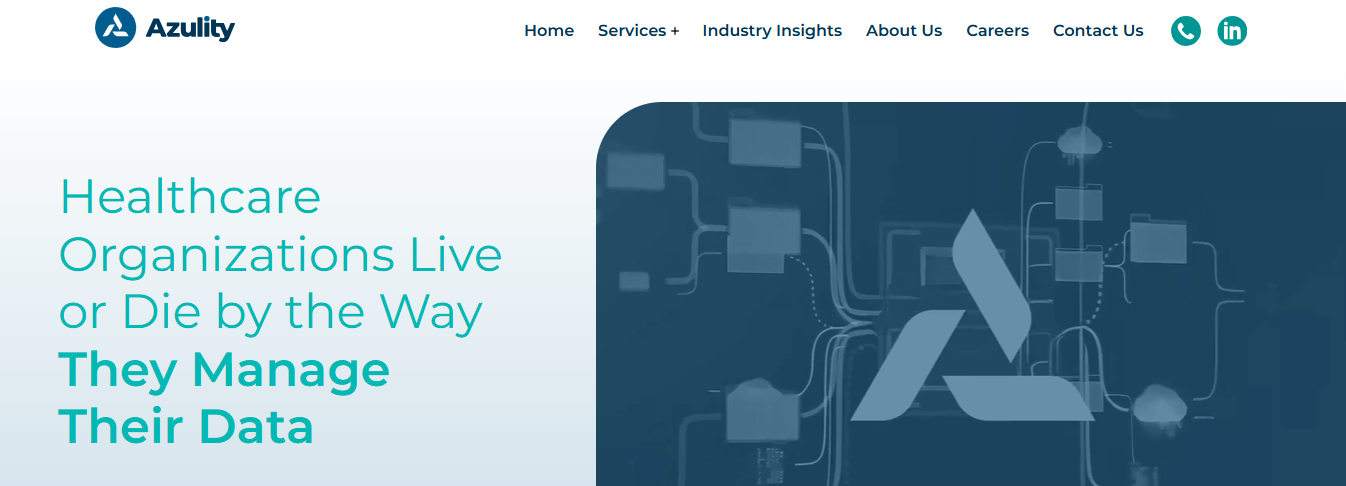

Azulity excels in healthcare master data management, offering a wealth of experience in delivering healthcare data solutions and credentialing across the United States. Their comprehensive platform guarantees synchronized patient, provider, location, and claims data across departments and systems, minimizing fragmented data challenges.
Key features include provider master data management, healthcare MDM, credentialing, reference data management, and provider enrollment. Azulity serves healthcare technology leaders, from CIOs and CDOs to VPs of credentialing and data platforms, helping them eliminate the costly problems of fragmented data systems.
Pricing
For pricing details, contact Azulity directly.
2. Cerner Millennium: Integrated Data Management for Improved Outcomes
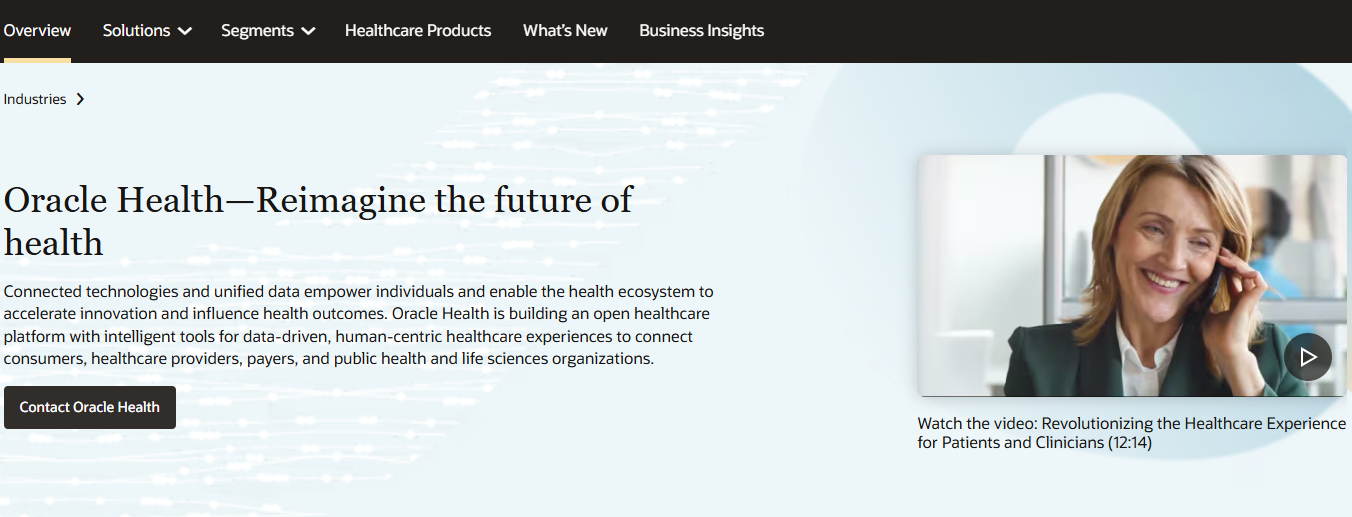

Cerner provides a suite of healthcare data management solutions, including its flagship platform, Cerner Millennium. This integrated system allows healthcare organizations to efficiently manage patient records, clinical workflows, and administrative tasks. With features like real-time data access and analytics, Cerner Millennium helps improve patient outcomes and operational efficiency.
Pricing
Licensing fees for Cerner Millennium range from $1 million to $5 million for smaller healthcare organizations, with larger institutions potentially paying significantly more. Maintenance and support costs can add 15% to 25% of the initial licensing fee annually.
3. Epic Systems: Data Management Capabilities for Smooth Patient Care
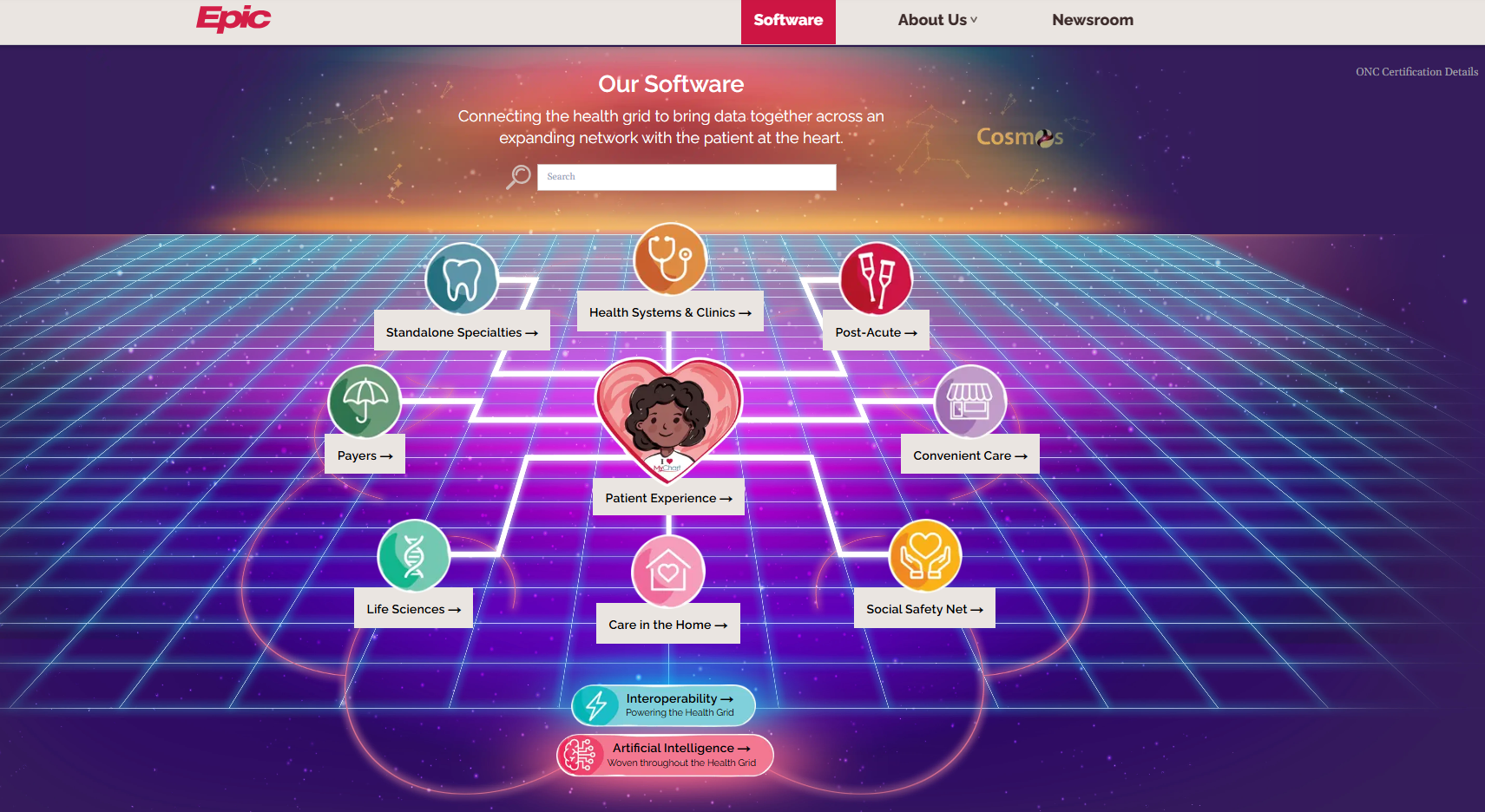

Epic Systems’ Electronic Health Record (EHR) software is widely used by healthcare providers worldwide. Its robust data management capabilities allow for smooth integration of patient information across various healthcare settings. Epic’s EHR facilitates communication between healthcare professionals and enables personalized patient care through advanced clinical decision-support tools.
Pricing
Epic Systems’ pricing can start at around $1 million to $2 million for smaller healthcare organizations, with larger institutions potentially paying tens of millions or more. Maintenance and support costs typically range from 20% to 25% of the initial licensing fee annually.
4. InterSystems HealthShare: Data Aggregation and Interoperability
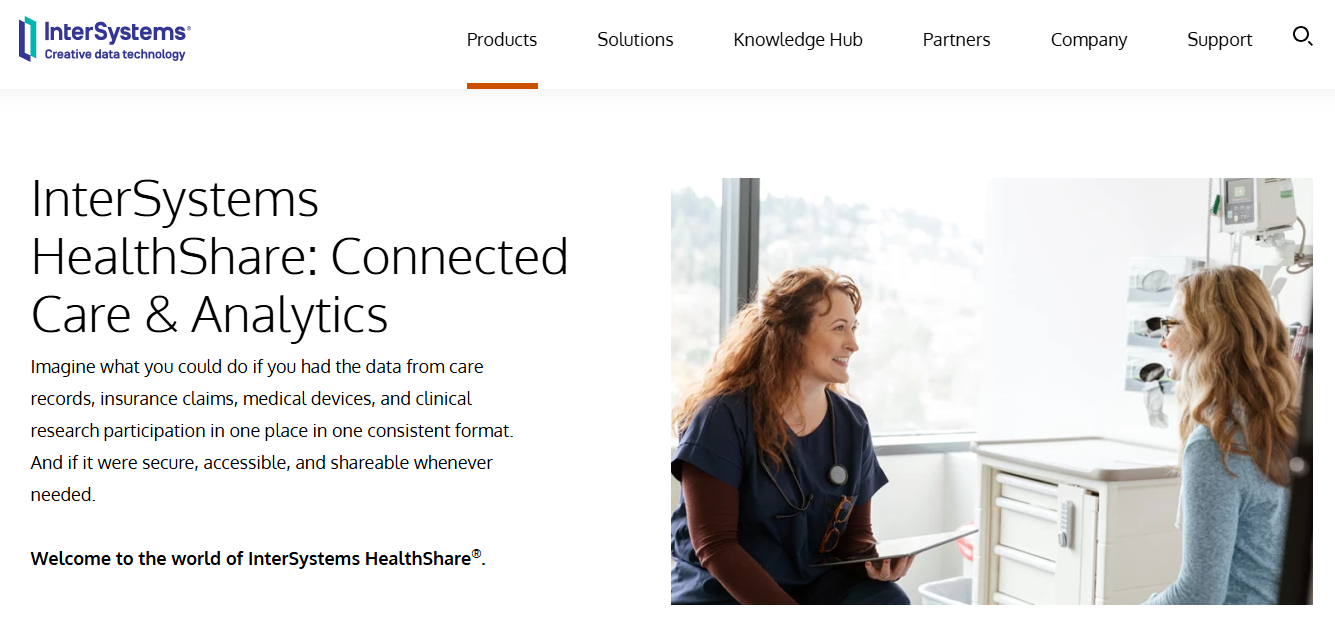

InterSystems HealthShare is a comprehensive health informatics platform that facilitates interoperability, data sharing, and analytics across healthcare systems. It enables healthcare organizations to aggregate, normalize, and exchange data from disparate sources, including electronic health records (EHRs), medical devices, and wearables. HealthShare supports care coordination, population health management, and value-based care initiatives.
Pricing
InterSystems HealthShare can start at approximately $200,000 to $500,000 for smaller healthcare organizations, with larger institutions potentially paying several million dollars or more depending on the scope of implementation and additional services required.
5. NextGen Healthcare: EHR Solutions That Boost Operational Performance
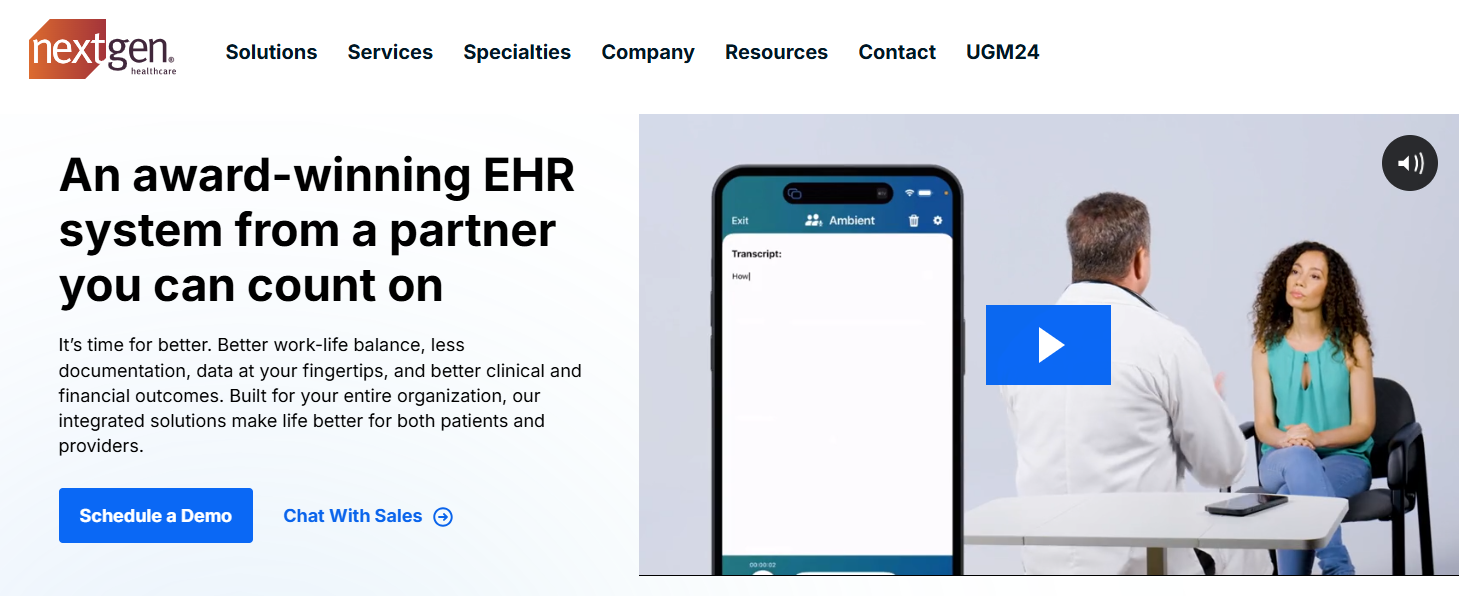

NextGen Healthcare’s EHR and practice management solutions provide organizations with robust healthcare data management tools to enhance clinical efficiency and patient care. With features like interoperability with third-party systems and built-in reporting capabilities, NextGen Healthcare helps healthcare providers achieve better outcomes and improve operational performance.
Pricing
Licensing fees for NextGen Healthcare start at around $500,000 to $1 million for smaller healthcare organizations, with larger institutions potentially paying several million dollars or more. Maintenance and support costs typically range from 15% to 20% of the initial licensing fee annually.
6. SAP Healthcare Solutions: Real-Time Insights for Better Outcomes
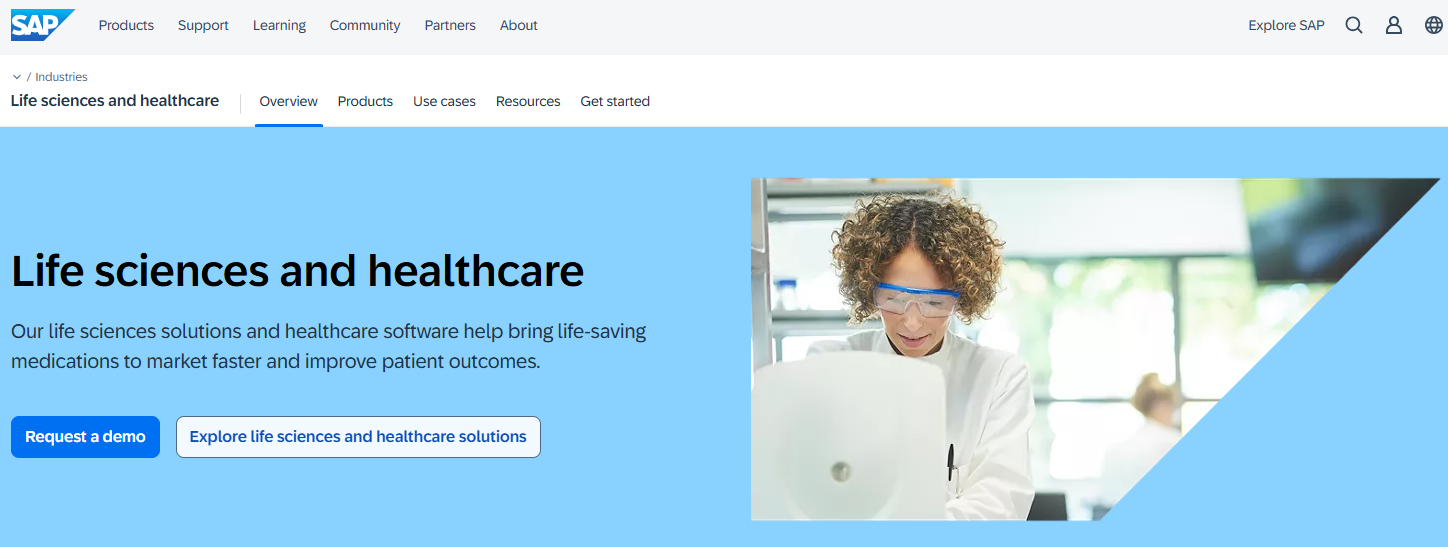

SAP provides healthcare solutions to various healthcare data management needs, including electronic medical records (EMR), health information exchange (HIE), and healthcare analytics. SAP’s healthcare solutions enable organizations to streamline operations, improve patient outcomes, and comply with regulatory requirements by leveraging real-time data insights and predictive analytics.
Pricing
Subscription fees for SAP Healthcare Solutions may start at approximately $50,000 to $100,000 annually for smaller healthcare organizations, with larger institutions potentially paying several hundred thousand dollars or more annually, depending on the modules and services selected.
7. McKesson Health Solutions: Clinical and Financial Improvements Through Data Management
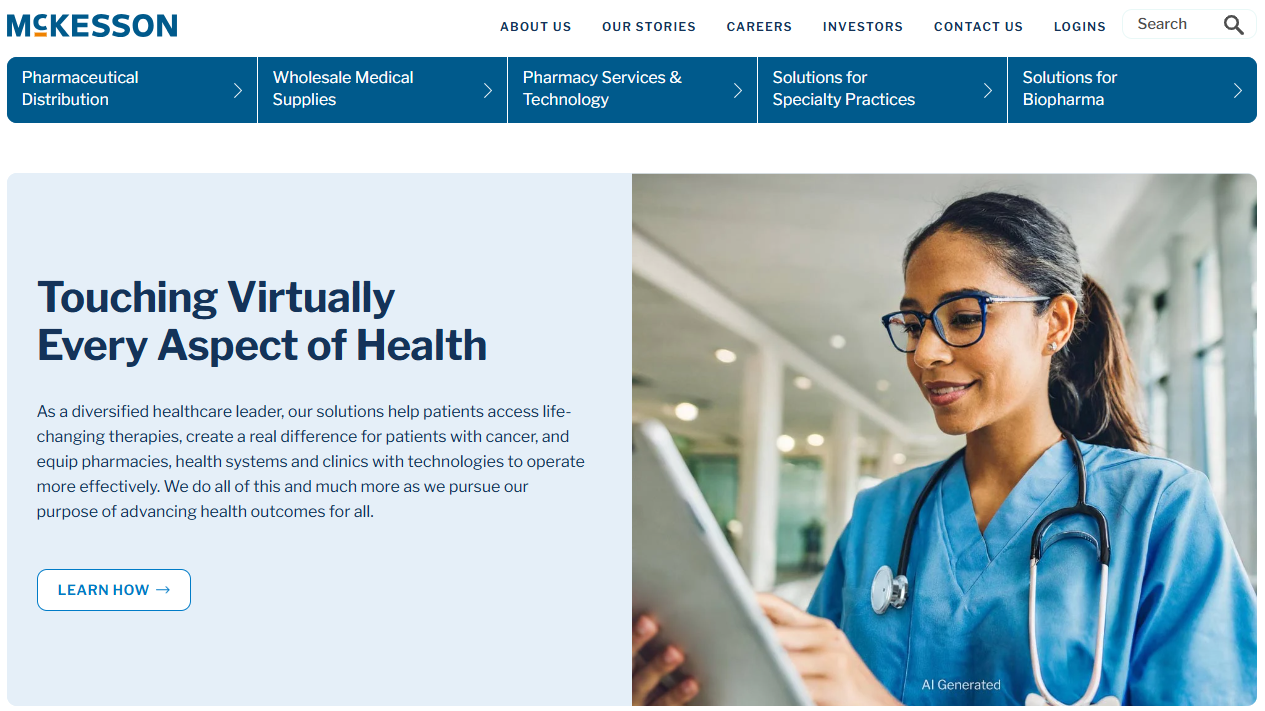

McKesson Health Solutions offers a range of healthcare data management solutions, including population health management platforms, revenue cycle management software, and clinical decision support tools. Their solutions help healthcare organizations improve care delivery, optimize financial performance, and enhance patient outcomes through data-driven insights and workflows.
Pricing
Pricing for McKesson Health Solutions can start at around $100,000 to $500,000 for smaller healthcare organizations, with larger institutions potentially paying several million dollars or more depending on the modules and services selected.
Related Reading
- Healthcare Provider Data Management
- MDM Implementation
- Reference Data Management
- Healthcare Data Integration
- Healthcare IT Consultants
What Problems Does A Healthcare Data Strategy Tackle?


Tackling Fragmentation: The Importance of a Unified Healthcare Data Strategy
Healthcare organizations often have data spread across multiple systems, departments, and databases. This leads to data silos that hinder a comprehensive view of patient care. For example, a patient may have records in a hospital’s electronic health record (EHR) system, a specialist’s database, and a lab system. Without integration, viewing the patient’s full medical history is complicated, potentially leading to incomplete or duplicated treatments.
Ensuring Accuracy: The Importance of a Unified Healthcare Data Strategy
Poor data quality, including inaccurate, incomplete, or outdated information, can lead to misdiagnoses, ineffective treatments, and operational inefficiencies. For example, a hospital may have inconsistent patient demographic data due to manual data entry errors. This can result in difficulty matching patients to records, leading to duplicate or medical errors.
Meeting Compliance Requirements with a Healthcare Data Strategy
Healthcare data is susceptible and must comply with strict regulations like HIPAA in the U.S. Protecting data from breaches and ensuring patient privacy are critical. A data strategy helps hospitals implement strict access controls, encryption, and regular audits, minimizing risks of breaches and ensuring compliance with regulatory standards.
Improving Interoperability with a Healthcare Data Strategy
Healthcare systems often use different software and data formats, making it difficult for systems to communicate and exchange information smoothly. If a patient transfers from one hospital to another, the new hospital may struggle to access the previous hospital’s records if they use incompatible systems, potentially delaying critical care decisions.
Generating Insights to Improve Patient Care
Without a data strategy, healthcare data often remains underutilized. Organizations must take advantage of opportunities to analyze trends and generate insights that could improve patient outcomes. For example, a hospital without an effective data strategy may be unable to identify high-risk patients (like those likely to be readmitted) and proactively manage their care, missing the chance to reduce readmission rates.
Optimizing Resources with a Healthcare Data Strategy
Hospitals and clinics need data to optimize resource allocation, manage costs, and improve operational efficiency, which is only possible with a comprehensive strategy. A healthcare provider may use data to monitor equipment usage rates and patient flow patterns to reduce wait times and avoid over- or under-staffing, resulting in better patient care and cost savings.
Enhancing Patient Engagement with a Data Strategy
Patients are increasingly seeking transparency and access to their health data. A lack of a strategy can limit effective patient engagement. With a good data strategy, patients could use a portal to access their records, view lab results, and communicate with providers. This can improve patient satisfaction and encourage proactive involvement in their care.
Tracking Outcomes to Improve Care
Without organized data, it’s difficult to track patient outcomes and measure the effectiveness of clinical interventions. A healthcare provider can implement a data strategy to monitor outcomes of treatments for chronic conditions like diabetes, helping adjust care plans based on data trends.
Azulity specializes in healthcare master data management, bringing proven expertise in implementing healthcare data solutions and credentialing across the US. Our comprehensive platform ensures consistent patient, provider, location, and claims data synchronization across all systems and departments. Key features include healthcare MDM, provider MDM, reference data management, credentialing, and provider enrollment. We serve healthcare technology leaders – from CIOs and CDOs to VPs of data platforms and credentialing – helping them eliminate the costly problems of fragmented data systems. Book a call to learn more about our healthcare master data management services today!
Book a Call to Learn More About Our Healthcare Master Data Management Services
To understand Azulity, it’s crucial to acknowledge its specific area of expertise: healthcare master data management. Master data management—MDM for short—collects, aggregates, matches, and organizes data to create a single, accurate, comprehensive dataset. This master dataset typically focuses on one of three areas: patients, providers, or locations.
Azulity specializes in healthcare MDM, bringing proven expertise in implementing healthcare data solutions and credentialing across the US. Our comprehensive platform ensures consistent patient, provider, location, and claims data synchronization across all systems and departments. Key features include healthcare MDM, provider MDM, reference data management, credentialing, and provider enrollment. We serve healthcare technology leaders—from CIOs and CDOs to VPs of data platforms and credentialing—helping them eliminate the costly problems of fragmented data systems. Book a call to learn more about our healthcare master data management services today!
